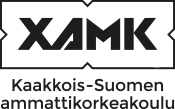Hospitality management (5 cr)
Code: MR00AF21-3004
General information
Enrollment
16.12.2019 - 10.01.2020
Timing
01.01.2020 - 31.05.2020
Number of ECTS credits allocated
5 op
Virtual portion
3 op
RDI portion
2 op
Mode of delivery
40 % Contact teaching, 60 % Distance learning
Campus
Mikkeli Campus
Teaching languages
- English
Seats
10 - 25
Degree programmes
- Degree Programme in Tourism and Service Business
Teachers
- Natalia Kushcheva
Teacher in charge
Natalia Kushcheva
Groups
-
MRMI19SD
-
MRMI18KP
-
MRKT18SMTourism and service business, part-time studies
-
MRMI18SM
Objective
You are able to -recognize the global trends and challenges in the hospitality field -take into account the different cultures of customers and staff in hospitality management, especially Russian and European countries -gather information about customers' needs and utilize it as fundamental basis of hospitality management -use the key models and tools of human resources and operational management
Content
What are the global trends and challenges in the hospitality field? (Why is there a need for sustainable tourism development? What are the topical issues, revealing the fast-changing nature of the tourism and hospitality business in terms of both demand and supply? How can you become aware and understand the complexity and interconnection of the modern tourism and hospitality industry?) How do you take into account the different cultures of customers and staff in hospitality management, especially Russian and European countries (How do you activate team skills by understanding the different tasks, activities and functions of your team when managing a multicultural hospitality organization?) How do you gather information about customers' needs and utilize it as fundamental basis of hospitality management? How do you use the key models and tools of human resources and operational management
Location and time
Class discussions, case studies, group projects, project presentations.
Teaching methods
Scheduled track:
The objectives of this course are to help students understand, organize, perform and manage effectively the service operations in the hospitality industry. The course’s overall objective is to prepare the student for the management career in the hospitality field.
This course will introduce students to service management within the hospitality industry. Main areas of study include the application of new service operation theories and models together with current issues in the hospitality properties
The course could be done totally in online form. Tasks for online studies are given in Moodle course page.
Blended track:
Class discussions, case studies, group projects, project presentations.
Evaluation scale
1-5
Assessment criteria, good (3)
Students can: b. evaluate information sources critically c) work as team members in working life expert duties and describe the problems of the professional field d. evaluate operations in customer, user and target group situations e. choose appropriate models, methods, software and techniques according to the purpose and justify these choices f. promote teams' goal-oriented operation g. apply critically the ethical principles of the professional field in different situations
Assessment methods and criteria
You are able to:
- outline the basic principles and design of hospitality management
- explain the role of travel motivators and destination life cycles
- identify the management and employee positions in a hospitality organization and discuss the responsibilities and activities involved with each in achieving the goals of financial profit and guest service
- outline effective quality management techniques for people, facilities, products, and economics in the hospitality industry
- analyze the impact of management style on guest services and employee relationships
Assessment criteria, satisfactory (1-2)
Student's graduation-level know-how and skills
a. use professional vocabulary and concepts in different situations
b. limit and justify the use of information sources
c. carry out unfamiliar interrelated tasksfluently
d. work together with customers, users and target groups according to the re-quirements of the situation.
e. apply models, methods, software and techniquesof the professional field and justify their use
f. work in teams in a goal-oriented way
g. apply ethical principles of the professional field in different situations
Assessment criteria, good (3-4)
Student's graduation-level know-how and skills
a. use professional vocabulary and concepts in an expert way in different situations
b. evaluate information sourcescritically
c. work as team members in working life expert duties and identifyand describe the problems of the professional field
d. evaluate operations in customer, user and target group situations
e. choose appropriate models, methods, software and techniques according to the purpose and justify these choices
f. promote teams’ goal-oriented operation
g. apply critically theethical principles of the professional field in different situations
Assessment criteria, excellent (5)
Student's graduation-level know-how and skills
a. professional vocabulary and concepts extensivelyand proficiently in different situations.
b. justify their information sources in a versatile and critical way
c. work innovatively and independently in working life expertduties and creatively identify and solve the problems of the professional field
d. promote and develop operations in customer, user and target group situations
e. evaluate and develop models, methods, software and techniques
f. manage and develop teamoperations
g. promote the application of ethical principles in unfamiliar situations
Qualifications
Management and leadership or corresponding know-how
